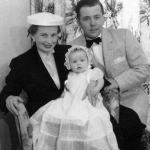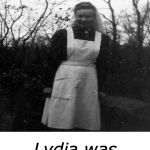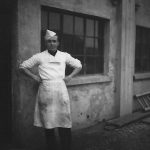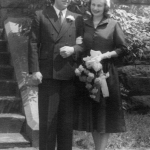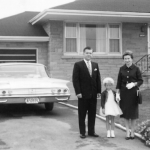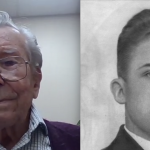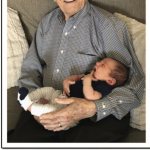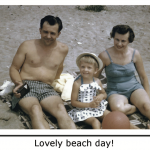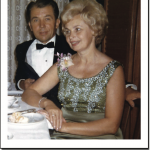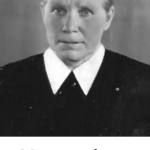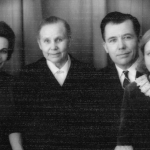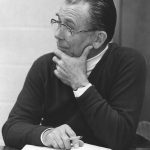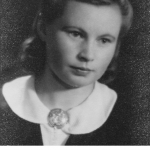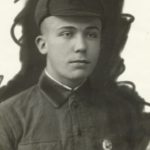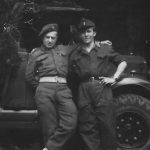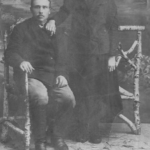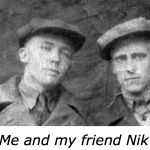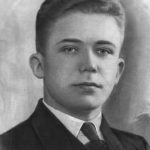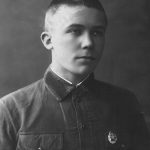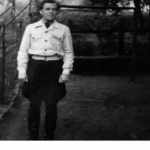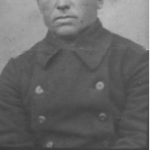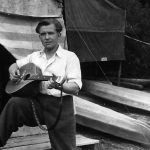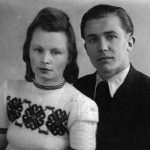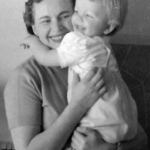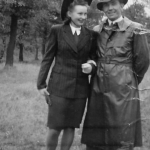George Markow was born April 14, 1921 in Russia, just outside the city of Leningrad. He was born just four years after the Bolshevik Revolution of 1917, and George remembers the impacts it had on his family and early life. Food especially was in short supply during those years, and the Party’s reach was growing. George was involved in the Young Pioneers and Comsomol at this time, but he was removed after he was spotted in church. By this time George was in his teens, and he was drafted into the army, and sent off to basic training, where he became involved in the communications branch. The German invasion came in June 1941, and George was deployed to the Smolensk area, where they first came under fire in October 1941. Strafed by the Luftwaffe, George’s regiment was rapidly surrounded by the German army, and he was taken as a prisoner of war not long after that. George survived disease , near starvation and forced labour during this time, as he and the other prisoners were moved from camp to camp as the front moved. Eventually George was taken into Germany as part of a transport company, and while he was there the war was winding down, and he saw an opportunity to get away, along with some friends. They connected with French soldiers and were taken to the Strasbourg area, where they received further driving instruction, and then they returned to Germany during the time of the occupation. From there it was back to France and several well-earned months in sunny Marseilles, where George and his friend Nik looked into a possible return to the Soviet Union. They were promised that they’d be welcomed to their homeland, but on reaching the east it quickly became clear that this was not the case. George worked as a driver for a Russian officer for a time, and he began to consider how he might return to the west. Taking advantage of opportunities along the way, George did manage that, and on crossing the border he went in the direction of Westphalia and then Hamburg, where he found a German army officer he knew from his time as a POW. George spent several years there, and during that time he met a young woman named Lydia; she was suspicious about him at first, but they began to date and eventually were engaged. Lydia was able to emigrate to Canada in 1948, and George was able to follow her in 1950. Once in Canada, George found work in a variety of places, including factories in Hamilton and tobacco fields in Delhi and logging in the bush, doing what he could to put aside some money. Things began to fall into place, and George ended up finding long term work at Ford, where he worked for 39 years, providing a home and falling into the rhythms of postwar Canadian life with his wife and growing family. We heard about George Markow in a news story, where as a 99 year old he walked 100 km to raise money for medical research; Mr. Masters was able to contact his daughter Sylvia, and they set up a zoom interview in March 2021.
Videos
Click next video below to keep watching
- 1. Family and Early Memories
- 2. The Revolution
- 3. The Pioneers and the Comsomol; The War
- 4. Drafted into the Russian Army
- 5. Operation Barbarossa - June 22, 1941
- 6. Under Fire; October 1941
- 7. A Prisoner of War
- 8. Building the Road
- 9. Thoughts of Escape
- 10. Moving between Camps
- 11. Into Germany
- 12. After the War
- 13. Heading West
- 14. Meeting Lydia
- 15. Canada, Part 1
- 16. Canada, Part 2
